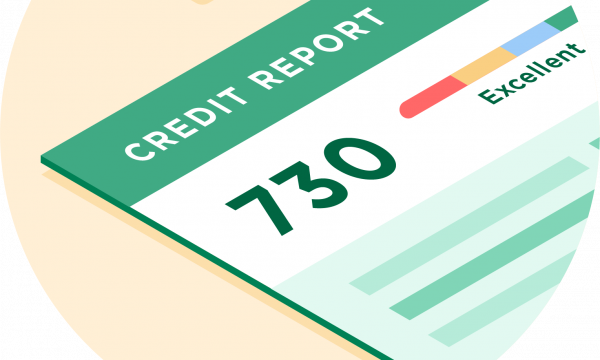Why Employers Check Credit and What They See
A credit check for employment doesn't show your score, just a modified credit report with debt and payment history.

Many, or all, of the products featured on this page are from our advertising partners who compensate us when you take certain actions on our website or click to take an action on their website. However, this does not influence our evaluations. Our opinions are our own. Here is a list of our partners and here's how we make money.
A credit check shows parts of your financial history. Employers may use it if the job involves handling money or private consumer information.
Employers don't get to see your credit score during this process, so there's no minimum credit score to get hired. Instead, they review a shortened version of your credit report. It may include credit accounts, payment history, debts, bankruptcies or liens and some work history.
The practice is debated. Critics argue it hurts people who are trying to build or repair their credit while also looking for work.
Here's what else you need to know about a hiring credit check, including whether it hurts your score, what rights you have and how to prepare for the process.
» Get your free credit score from NerdWallet today
Stress less. Track more.
See the full picture: savings, debt, investments and more. Smarter money moves start in our app.
Why do employers check credit?
Employers say credit checks help them protect their money, workers and customers. They see them as a way to judge a potential employee's trustworthiness and responsibility. The credit check functions as a kind of credit reference and employers believe it is a way to get key insights into a person's character.
Your credit history might raise concerns if it includes:
- Late payments: Could signal you have trouble staying organized or following through on agreements.
- High debt or maxed-out credit cards: May suggest financial stress, which some employers see as a risk for theft or fraud.
- Past money troubles: Could indicate you are a poor fit for a job that involves managing company money or consumer information.
The Professional Background Screening Association and HR.com's survey of human resources professionals in 2021 found that credit or financial checks are included in 51% of employer background screenings for companies with U.S. locations.
What do employers see in a hiring credit check?
Potential employers see a modified version of your credit report, says Rod Griffin, senior director of consumer education and advocacy for Experian.
| What employers will see | What employers won't see |
|---|---|
| Identifying information like your full name and address. | Your credit score. |
| Your credit accounts and your available credit. | Account numbers on your credit accounts. |
| Your payment history. | Your income. |
| The parts of your employment or work history that you have self-reported on credit applications. | Medical bills (some unpaid medical collections may appear). |
| Bankruptcies or liens. | Any identifying information that could be used to discriminate, including your birth date, marital status, or race and ethnicity. |
Does an employer credit check hurt your score?
No. The credit check counts as a soft inquiry on your credit, so it won’t take points off your credit score the way a hard inquiry might. Hard inquiries happen when you apply for a credit card, mortgage, car loan or other big purchase.
The credit report also won’t show other soft inquiries on your credit, so potential employers won’t be able to see if other employers have checked on you. But you will be able to see the soft inquiries if you request your own credit report.
How do employers check your credit?
Businesses may get an employer credit report from one of the three major credit reporting bureaus — Equifax, Experian and TransUnion — or may use a specialty screening company.
What are your legal rights under the FCRA?
You can be denied a job because of your credit, but you do have protections under the Fair Credit Reporting Act. Here's what the law requires:
Notification and permission: Employers must tell you if they plan to check your credit and get your written permission. The FCRA requires the notice to be “clear and conspicuous” and not mixed in with other language.
Warning before rejection: If your credit report is part of the reason why you might not get a job, the employer must tell you before the decision is made. You'll get a pre-adverse action notice, including a copy of the credit report used and a summary of your rights.
Time to respond: Employers must wait a few days — usually three to five business days — before moving forward. This gives you a chance to explain negative items or correct errors with the credit bureaus.
Final notice, right to free copy: If the employer does reject you, it must follow up with a post-adverse action notice, giving the name of the credit report agency, its contact information and explaining your right to get a free copy of the report within 60 days.
Stress less. Track more.
See the full picture: savings, debt, investments and more. Smarter money moves start in our app.
How to prepare for a hiring credit check
Looking at your own credit report first can help you see what an employer will see — and potentially fix any mistakes ahead of time.
You’re entitled to one free online credit report every week from each of the three bureaus by using AnnualCreditReport.com. If you spot errors, get them corrected through a dispute process.
Use this time to also prepare an explanation of negative information in your credit reports. Even something as small as a missed payment could be a red flag to potential employers. By preparing a statement ahead of time explaining any negative marks in more detail — for example, how a previous job loss led to a late payment — you’ll show the hiring managers that you are taking responsibility for your financial actions.
If you have a credit freeze with the major credit bureaus and know a potential employer is going to check your credit, it’s a good idea to temporarily lift the credit freeze. If not, the freeze could slow down the hiring process.
In the meantime, build healthy credit habits:
- Pay all bills on time. Payment history is the single biggest influence on your credit scores, so keep late payments off your report.
- Use available credit lightly. Experts say it’s best to use less than 30% of your available credit on any card at any time — and lower is better. That shows you’re not overextended financially and also helps your scores because credit usage has the second-biggest influence on them.
- Monitor your credit report regularly. Some personal finance websites, such as NerdWallet, offer a free credit report and score that you can check whenever you like — giving you a way to regularly watch for negative marks.
How to request your credit reports in Spanish
You can request your credit report in Spanish directly from each of the three major credit bureaus:
- TransUnion: Call 800-916-8800.
- Equifax: Visit the link or call 888-378-4329.
- Experian: Click on the link or call 888-397-3742.
Usted puede solicitar una copia de su informe crediticio (gratis y en español) de cada una de las tres principales agencias de crédito:
- TransUnion: Llame al 800-916-8800.
- Equifax: Visite el enlace o llame al 888-378-4329.
- Experian: Haga clic en el enlace o llame al 888-397-3742.
Controversy around employer credit checks
Some critics of employer credit checks say that a worker's credit report has little to do with their ability to perform most jobs. Instead, the practice harms workers — especially people of color and low-income applicants — by making it harder to get stable employment.
"There are some significant racial disparities in credit history and credit scores," says Chi Chi Wu, a staff attorney at the National Consumer Law Center. "Studies show that Black and Latino consumers have lower credit scores as a group," she notes, citing reasons like the racial wealth gap and other forms of discrimination that make debt harder to pay off and easier to accrue.
A 2024 Urban Institute report shows that low-income workers are also disproportionately impacted by preemployment credit checks because they tend to have late payments or accounts in collections on their credit reports.
As a result, some states have limited the use of employer credit checks. You can check with your state labor department or your city government to learn whether employer credit checks are restricted in your area.
Supporters of employer credit checks say they give employers insight into a potential job candidate's judgment and decision-making, which could affect the company in the future.
Article sources
NerdWallet writers are subject matter authorities who use primary,
trustworthy sources to inform their work, including peer-reviewed
studies, government websites, academic research and interviews with
industry experts. All content is fact-checked for accuracy, timeliness
and relevance. You can learn more about NerdWallet's high
standards for journalism by reading our
editorial guidelines.
- 1. HR Research Institute . Background Screening: Trends in the U.S. and Abroad. Accessed Sep 16, 2025.
- 2. Urban Institute. Preemployment Credit Checks: Employer Practices, Worker Outcomes, and Implications for Practice and Research. Accessed Sep 23, 2025.
On this page
Related articles








